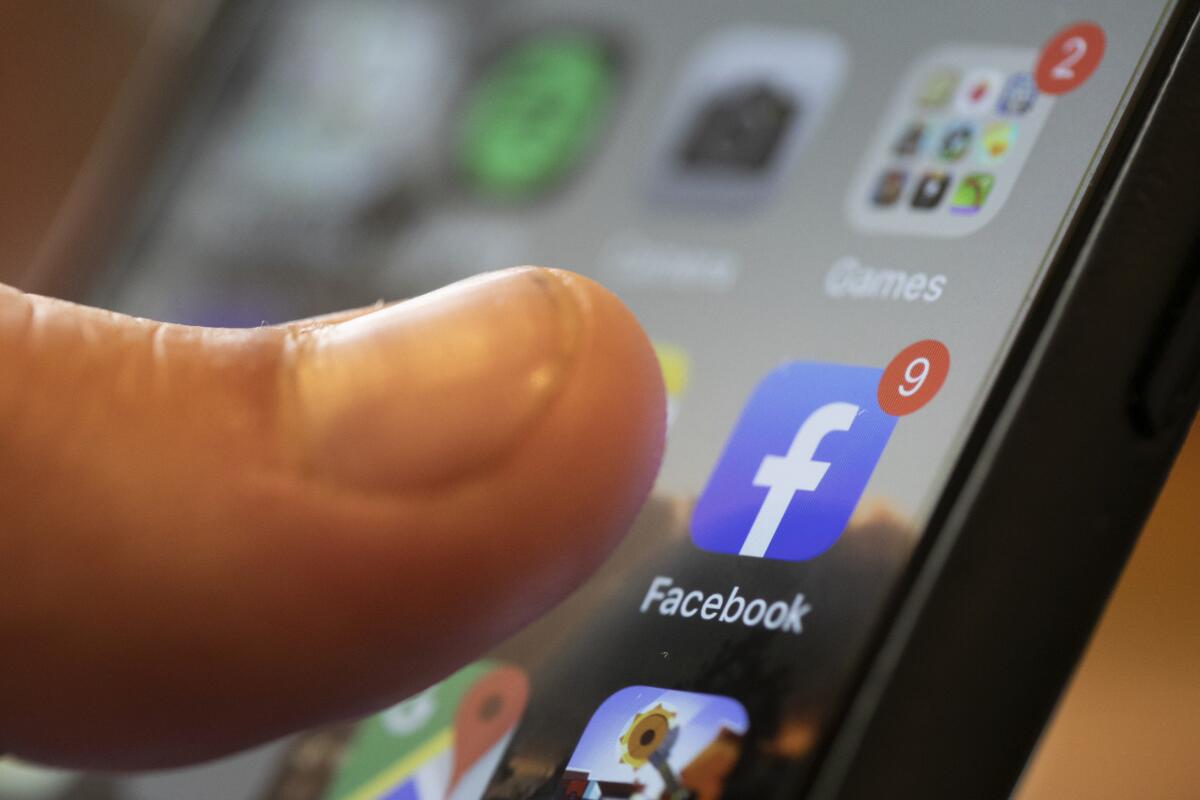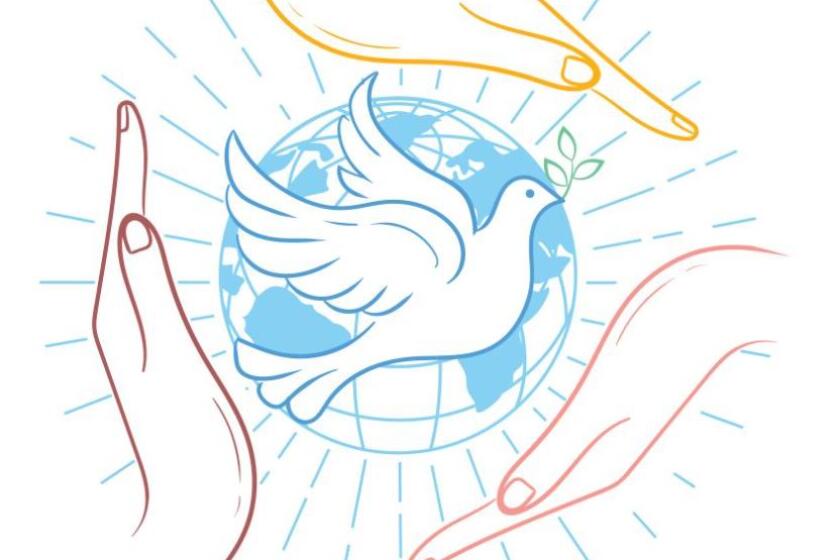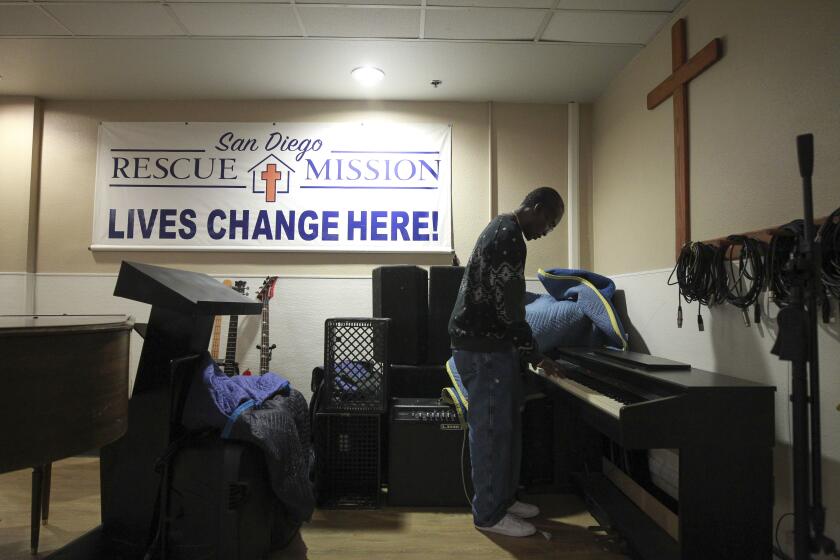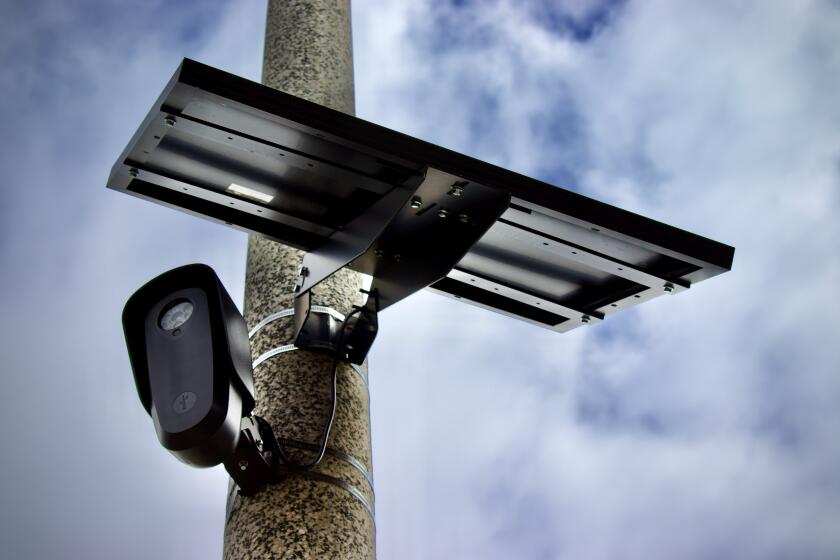Opinion: I can no longer support Facebook in good conscience

Perhaps, if more folks boycott Facebook, we can have a shot at restoring civil discourse.
DeBoskey is a retired radio broadcast executive. He lives in Point Loma.
I’ve decided that, in good conscience, I can no longer support Facebook by continuing to subscribe to and use that platform. I’ve come to this conclusion after reading The Wall Street Journal expose on the algorithms used by Facebook, followed by the story this month on “60 Minutes” and the revelations made to Congress by whistleblower Frances Haugen.
Admittedly, I was late to the party. I joined Facebook just over eight years ago. Nonetheless, I truly welcomed the connections and reconnections it provided me, and I will miss the photos and commentary that have been both a joy and informative. I’ve watched my distant grandkids grow up and followed their activities, reconnected with acquaintances and friends from over a half a century ago, learned about new restaurants worth a try, laughed out loud at silly dog and cat behavior, and enjoyed the music posted by Facebook “friends.” When used as a purely “social” connection, it’s been meaningful and enjoyable. And, like many others, I’ve curated my “friendships” to more closely coincide with my social and political beliefs, choosing to avoid the arguments that vastly alternative points of view can generate. Concurrently (and unfortunately) I’ve “locked out” legitimate alternative viewpoints worthy of consideration.
We provide this platform for community commentary free of charge. Thank you to all the Union-Tribune subscribers whose support makes our journalism possible. If you are not a subscriber, please consider becoming one today.
Nonetheless, I find myself very saddened by the current confrontational discourse in this country and determined to not support a platform whose strategy is promoting argumentative, antagonistic communication, thereby contributing to the split and divisiveness that permeates our society.
Last month, The Wall Street Journal explained its investigation like this: “Based on an extensive array of internal Facebook documents, we explore the fallout of a major algorithm change the company made in 2018. The documents outline how an emphasis on engagement incentivized the spread of divisive, sensational content and misinformation.”
“From the documents that we have seen, there was a panic going on inside the company,” Journal reporter Keach Hagey said.
“The panic wasn’t over misinformation or harm stemming from the platform,” Journal reporter Ryan Knutson said. “It was about a troubling trend with Facebook’s business. The company was noticing a steep decline in user engagement.”
The Journal investigation found that Facebook significantly modified its algorithms to increase “Meaningful Social Interactions.” Facebook hoped the algorithm change would reverse that decline. It did that and more. Documents show that after the algorithm change, divisive content ramped up on Facebook. Sensational, extreme posts, and stuff like misinformation was now going more viral on the platform.
And then, early this month, Haugen testified to Congress how the social network harms young people. Facebook’s own internal research links teenagers’ use of Instagram (a Facebook company) to anxiety and depression. Facebook’s efforts are consistently aimed at delivering user attention to advertisers, both on Facebook and Instagram. And, of course, user numbers drive revenue, which totaled $86 billion last year, mostly from advertising.
Like many Americans, I’m deeply disturbed by the direction of civic discourse in our country and the “my team vs. your team” attitude that seems to permeate every aspect of our lives, from mask-wearing to climate change to vaccination to anything that might approach bipartisanship in Washington. As a concerned citizen, I feel it imperative to “put my money where my mouth is” when one is truly bothered by circumstances.
And so, I will leave Facebook. I intend to remain active for several weeks, hoping that any of my “friends” with whom my only connection is via Facebook will reach out to me in order that we can exchange email addresses or other modes of staying in touch. In fact, since I posted my plan to leave Facebook about two weeks ago, I’ve had several dozen of my “friends” reach out and provide me with direct contact information, and several have both echoed my concern and indicated that they are considering a similar decision. And, while I’m by no means a web designer, I’m thinking I’m going develop my own web page and connect my Facebook “friends” to that site so that we may follow each other’s lives and fortunes off the Facebook platform.
It’s very easy to complain — I’ve done more than my fair share — but unless we decide to take positive, individual steps, nothing will ever change. I think some of the political activism we’ve seen in the past few years more than substantiates the need to “raise our hand” and stand behind our convictions.
In my case, there’s no substitute, of course, for direct, interpersonal communication, and I’ll just need to work harder to maintain the wonderful connections that my foray into social media has provided. Perhaps, if more folks chose to boycott those areas that give them concern, we can have a shot at restoring some degree of civil discourse.
Get Weekend Opinion on Sundays and Reader Opinion on Mondays
Editorials, commentary and more delivered Sunday morning, and Reader Reaction on Mondays.
You may occasionally receive promotional content from the San Diego Union-Tribune.






